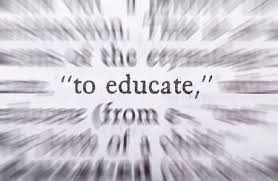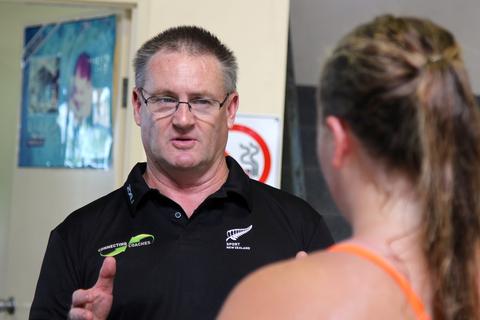Becoming a Great Coach – What’s holding you back?

Every day I receive several emails, calls, texts etc. from coaches all over the world asking how they can become a great coach.
The emails usually start with a list of problems, challenges and difficulties the coaches are facing in their daily coaching environment and why these problems are standing in the way of them realising their potential as a coach.
However, when I talk with a great coach – which I define as “a coach who has consistently demonstrated his / her ability to produce athletes who win at the highest level of competition” – they do not talk about obstacles or challenges or barriers or limitations….they only talk about their passion for coaching and their uncompromising commitment to excellence.
So the question for you is, if you are determined to become a great coach – what’s holding you back?
Accept this…..
There is no coaching nirvana. There is no program, no pool, no track, no court, no field, no practice arena in the world, in any sport where everything is easy and the coach has a wonderful life with unrestricted access to outstanding facilities, a perfect political situation, unlimited resources and an endless procession of talented, committed, hardworking, passionate, determined athletes.
In fact, in many situations where coaches have had to fight hard just to survive as a coach, make their own luck and make the most of every limited opportunity they have been given, their results bely their lack of resources, facilities and support.
Also believe this….
It doesn’t get easier. Many amateur coaches believe that the next step up the coaching “ladder” will see all their coaching problems fade away or that becoming a professional coach will make life easy. Nothing could be further from the truth.
Too many coaches get lost in the “if onlys”.
“If only I had more facility access…..”
“If only I had athletes who were committed and hard working…..”
“If only our Club had more money and resources…..”
The bigger the prize: the bigger the challenge: the greater the obstacles. National level coaches, international level coaches and professional coaches all have to face and overcome significant challenges every day. Money and resources are rarely the real limiting factors when it comes to achieving coaching greatness.
So what’s holding you back: The Ten Things standing in the way of you becoming the coach you can and want to be.
So what’s really holding you back?
Money? No.
Facilities. Uh-uh.
Equipment? Unlikely.
A lack of talented athletes? Hardly.
It’s likely to be:
- Lack of self-belief. Confidence is the key ingredient in all great sporting success stories. Far too many coaches dream of greatness and but try to achieve it by copying others. Winning means being unique and being different and having the courage to do things differently and to do different things. Great coaches have the confidence to be themselves, to “back” themselves, to believe in their own abilities and to dare to be different in finding a winning edge.
- Waiting for the perfect athlete. There are no perfect athletes. Many coaches wait for “coach-able” athletes – i.e. talented athletes who are easy to coach, who take direction readily, who have a positive attitude and who are motivated to train to their full potential at every training session. In reality coach-able athletes with real talent are very, very rare and moreover, quite often athletes who are easy to coach and easily led are unlikely to be the passionate, unique, “special” ones who win gold medals, score winning goals or break world records.
- Waiting for the perfect coaching situation. And there is no perfect coaching situation. The highest paid coaches working for the biggest sporting clubs in the world still have problems…with selection, with their Board, with the Club’s executive team, with the media, with player egos, with staff management and with many other issues. Great coaches do not wait for the perfect coaching situation – they work tirelessly to make their own coaching situation “perfect” by providing the right environment for every athlete to realise their potential.
- Believing that money is your biggest problem. Money is rarely if ever the real limiting factor in achieving coaching greatness. Great coaches do what’s necessary to achieve success. They are resilient, industrious, resourceful and enterprising. When it is important to the performance of their athletes, they will find a way. They don’t sit back and wait for government handouts or for private sponsorship. They determine what they need – as opposed to what they want – and they get it.
- Compromise. Great coaches “set the bar” – i.e. set their standards very high and do not compromise on their expectations of achieving those standards. They live excellence. They consistently demonstrate outstanding coaching regardless of the challenges, problems, adversities and obstacles they face. They don’t see excellence as an option – they see it is as a minimum standard – a core expectation of every one they work with.
- Spending too much time, energy and effort dealing with politics. Politics is everywhere in sport – in every nation, every sport, every Club – it’s everywhere. The great coaches understand politics, they manage the political situation around them when and where it is relevant, i.e. when the politics of the situation impacts directly on the preparation and / or performance of their athletes.
- Not working hard enough. Great coaches work double or triple time. That is, for every hour of training, preparation and competition that their athletes are completing, they do two or three hours of coaching work. Too many coaches will place a claim to greatness but are not prepared to work two or three times harder than their athletes to achieve it….and therefore, greatness constantly eludes them.
- Not coaching with real engagement. Engagement is defined as “giving more than could reasonably be expected” and great coaches consistently give more, do more and coach more than could reasonably be expected of them. Great coaching is not about what you do – it’s how you do it.
- Not being prepared to fight hard enough or long enough for effective change. Change and resistance to change are inevitabilities in life and in sport. There are three types of people in sport. Those who passionately reject change, those who just as passionately pursue change and those who don’t really care one way or the other. No matter how good an idea may be or how common sense it may appear, there are always people within sporting organisations, Clubs and teams who will fight hard to resist them for no reason other than that idea is new and different. Great coaches are change drivers who change the nature of their sport through their actions, their standards and their performances. They live change. They do not accept resistance to change and work relentlessly to overcome it – believing it to be essential in competitive sport if athletes are to achieve their performance goals.
- Lack of creativity and innovation. Great coaches are inventors. They are trail blazers. They are risk takers. They are the ones who look outside the rules, paradigms and “must-dos” of their own sport and introduce new ideas and innovations which change the very nature of coaching. Others who dream of greatness can only sit in lecture theatres take notes and copy what the great ones are already doing…… and copying kills creativity.
So what’s next for you?
Put yourself in the shoes of a talented young athlete.
Imagine for a moment you were an outstanding young footballer or talented teenage basket-baller or brilliant young tennis player or swimmer or rower etc.
Imagine too that you said to yourself, “Coach, I want to be the best. I want to be great. I want to go as far as I can in this sport. I want to learn how to make the most of my talent and realise the full extent of my potential. I want to win”.
What advice would you give yourself?
Something like this?
“Never ever give up. Give everything you have – every day – to being the best you can be. Learn as much as you – as fast as you can. Do more than is expected and do it better than could be anticipated. When obstacles and problems arise, face them, fight them and overcome them and most importantly learn from them. Try things that no one else is trying. Be inventive and creative and find a winning advantage. Understand your strengths and make them powerful: you will succeed on your strengths. Make sure that your passion to prepare is greater than your potential to perform – preparation is everything. And most of all, believe in you – you are good enough to be anything, go anywhere and achieve anything”.
Something like that?
You already know what you have to do to become a great coach. Go do it. Today. Right now.
Wayne Goldsmith



3 Comments
Excelsior · December 12, 2012 at 2:11 am
Thanks Wayne, resonates strongly with me. I have recently had 22 year old coaches asking me to help “raise their profile”. All back to front. They don’t seem to want to coach well first.
This reminds me that i have to work harder as a coach than the athlete does.
Wayne Goldsmith · December 12, 2012 at 11:34 am
Thanks James.
With coaching, like so many things, you get out of it what you put into it. Part time commitment produces part time results. Want athletes to improve….improve your own coaching first.
Thanks again,
WG
mgreb · December 16, 2012 at 11:25 pm
Whenever I start feeling low in energy or belief, I always come back here for a quick refueling. There is always something I can read, or re-read, that helps me bolster my own commitment, regardless of what is happening elsewhere. Being able to have a quick pick-me-up let’s me get back in my game, at the level I have chosen, for the reasons I believe are correct.
Thanks, Wayne.
And merry Christmas to you, and all my southern friends.
-Michele-